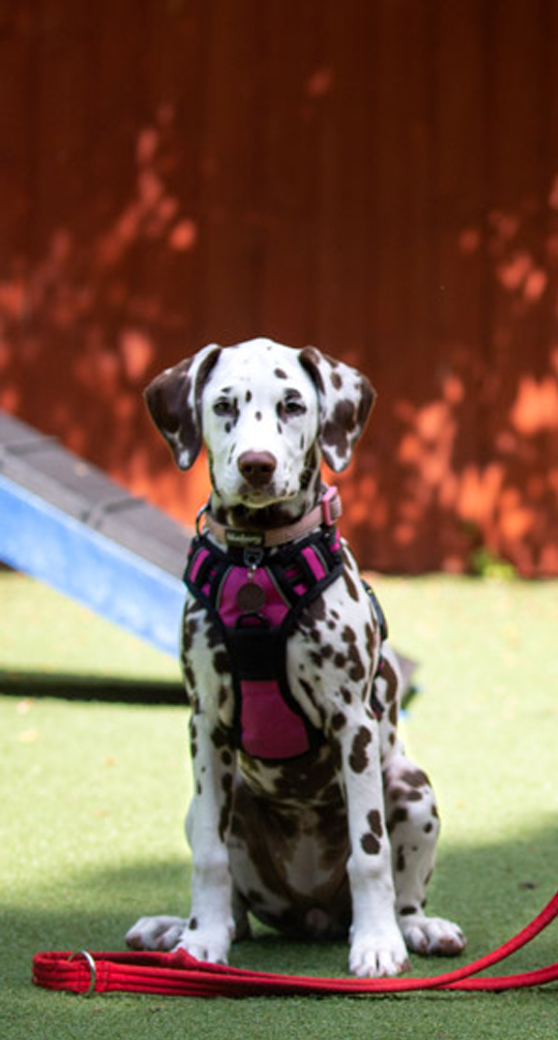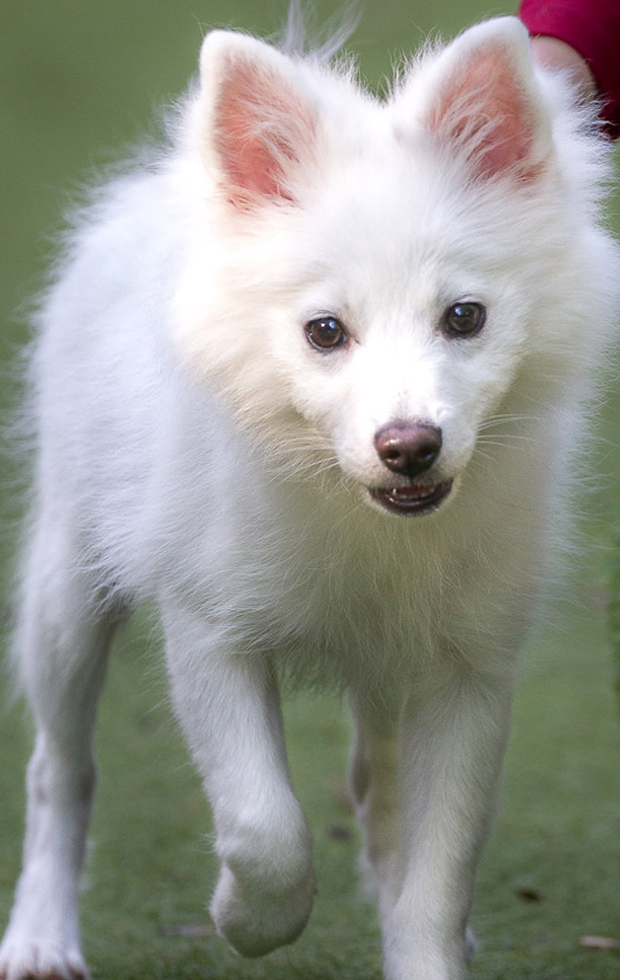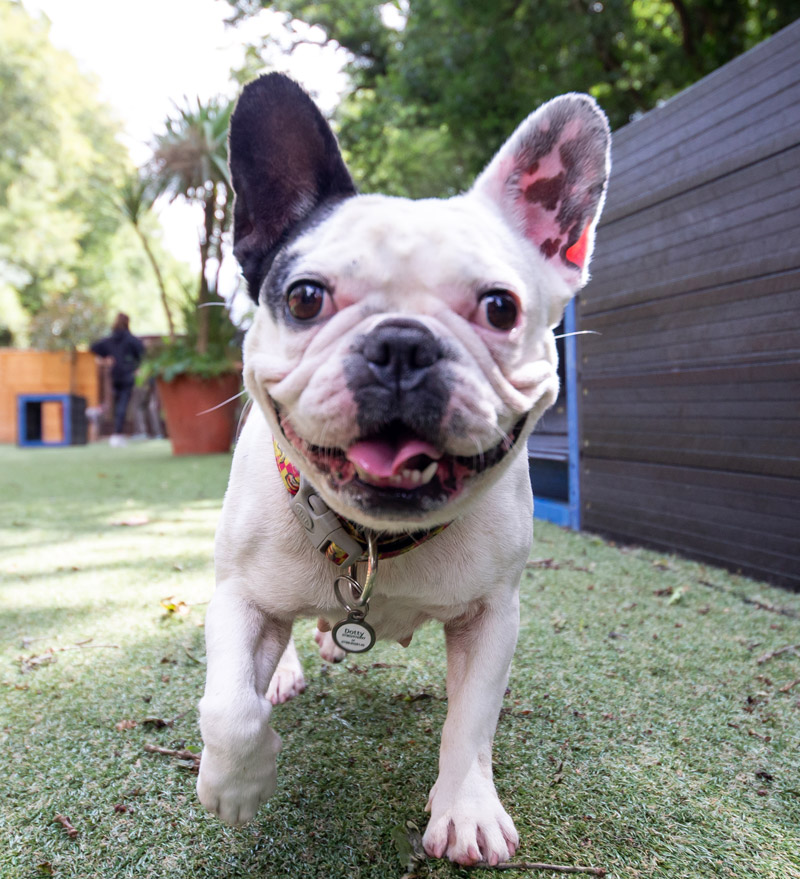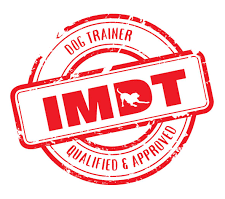Five mistakes to avoid with a new puppy
Five mistakes to avoid with a new puppy

Our mission at Royvon is to help dogs to live their happiest, healthiest life in the company of their loving family. We specialise in dog training for all ages, breeds and personalities but if there is one thing we know can help as many dog families as possible, it is to start their dog training journey when they are a puppy. The enriching experience of positive puppy training helps to create a safe, trusted bond for life, teaching your dog that they can turn to you for guidance when they are uncertain and giving you the reassurance that you know how they will react in new environments so that they can come along with you more of the time.
The right training from the beginning hugely reduces the chance of behavioural issues in the future. We are there to help and support all the way from advice pre-puppy’s arrival, through those magic early months where they are constantly learning, into adolescence and beyond.
Royvon has been training puppies and adult dogs since 1959. Our passionate team loves to share their experience and we have outlined five key mistakes we see new puppy owners make so that you can take the right steps from the beginning. These are not in priority order, as with everything when it comes to puppy training, it’s important to take your puppy’s temperament and personality into account.

1. Not setting a strategy for training
When your puppy arrives home, they are constantly learning, regardless of whether you know you are teaching them! Having a plan for training is as much about how you would like your puppy to behave in your home as understanding the needs of their breed as they develop.
For this reason, appropriate training actually starts when you select the breed of your new arrival. Puppy training starts with basic skills such as sit, recall and down but as they grow, their training needs become more varied. By carrying out thorough research of what your puppy will need when they are older, you can make an informed decision about whether you will be able to carry out the dog training they will require.
The internet is full of plenty of information on dog breeds but unfortunately it isn’t all correct. It is almost always generic and can’t take into account your personal circumstances. To choose the right breed for your family requires consideration of many different aspects: whether you are working at home or away, the outdoor space you have, how close you are to a busy road, the people in your household, even the way your home is laid out internally.
Being prepared with your training plan from the start prevents firefighting as problems come up. If you are constantly responding to the issue right in front of you, it is easy to end up in a cycle of research and trial, never getting on top of the underlying problem or jumping to the next thing before a strategy has had time to work. A new puppy in the home can be exhausting enough but this cycle can cause real negativity in both owners and puppies.
Royvon puppy training starts before your new puppy even arrives home. We visit your home to discuss everything you need to help prepare you and your home for your particular circumstances. We will go through those burning questions you know you need to learn, as well as things you didn’t know you needed to think about! One of the key things that may sound counter-intuitive is keeping puppy’s favourite, exciting things out of reach until you need them for training. Toys, chews, balls etc. are brilliant for training motivation but if they are readily available any time, the motivation to respond in the desired way is lost.



2. Setting inappropriate expectations
We all have times when we want everything to be perfect: the best day ever, the most polite children and the best behaved puppy! There is nothing wrong with striving for great results but as with anything, if you will settle for nothing less than perfect, you are likely to find your expectations are never reached.
While training is essential for dogs of any age, wanting everything too soon and being a ‘pushy’ puppy parent leads to expecting too much, too young. If what you are asking for is beyond your puppy’s developmental stage, they won’t be able to please you, no matter how hard they are trying. In turn your puppy loses motivation for training, and so do you. The desire for a very set result can lead to boring repetition that doesn’t keep a puppy’s attention, which can lead to further issues in the future. Puppies, like toddlers, are looking for fun and if they don’t have fun with you, they learn that the good stuff happens when they are outside. Depending on the breed, this may lead to behaviours in adolescence such as chasing cars to follow their high prey drive, not responding to recall once they pick up a scent and jumping up at strangers for attention.
With appropriate puppy training goals, the whole family can live in harmony and create the safe, fun environment that your puppy can thrive in.
3. Incorrect Socialisation
Being able to take your dog for a walk without worrying how they might behave around other dogs is an important part of the enjoyment of being a dog owner. Helping your puppy to learn how to socialise well with other dogs is very important, but it is not the full extent of what socialisation covers.
There is a key period when your puppy is young that they are open to new experiences and you can help to reassure them they are safe and secure. Correct socialisation for your puppy will be unique to your household and circumstances. If you plan in the future for your dog to be able to commute to work with you, you will need to introduce them to the car, bus or trains in these early stages. Getting to know the sound of the vacuum, the TV, the way children in the house play, even what you look like in your big winter clothes and hats or putting up an umbrella, when they are young enough to accept it as normal, prevents them from finding things hard when they are older.
Your puppy is pre-conditioned to love and adore you, enjoying the enrichment of pleasing you and learning new things. This can lead to a false sense of security and a belief that your puppy will grow into a dog who does the same. This is not the case and those brilliantly behaved dogs that you see out and about are no coincidence, they have continued to train with their owners to retain that keen focus.
When it comes to other dogs, mixing is important, but your puppy will soon learn where the fun really is if home is a place for repetitive training and playing with random dogs is when they can really let off steam! It is a lovely site to see dogs playing with such joy but it needs to be under your terms rather than any time your puppy feels like it.


4. Repeating boring exercises
When Covid shut everything down and we moved our puppy help training online, it was a real eye-opener for us at Royvon. Seeing people at home with their puppies it became clear why we normally meet so many stressed dog owners who come to us when their puppy is an adolescent or adult, looking to resolve the challenges they are facing.
The families we met on zoom were taking responsibility and prioritising puppy training from the beginning, but we noticed a big problem: they weren’t making it fun. Practising the same activity repeatedly had led to some clear short-term results but the puppy wasn’t enjoying themself. Motivation isn’t just the immediate treat that a dog receives upon carrying out a certain action but the enriching activity that fun training can be in its own right.
Puppies need to be exercised, mentally enriched and burn out their enthusiasm. The majority of puppy owners have limited time that they can focus on their puppy and if all this time is used carrying out boring training activities, their puppy loses out on the other things they need. As a result they will seek more attention and activity, finding mischief and annoying their family when they think they have just spent enough time with them. A puppy that has its needs fulfilled is much more likely to settle and rest.
5. Not enough focus on play
Puppies are amazing little creatures who will do anything for us when they are young! The key is to reinforce those behaviours with positive encouragement so that this doesn’t change as they grow. What works when they are little won’t necessarily translate when they are older, even food rewards lose their appeal as your growing dog learns how much excitement there is out there in the world. As a result, recall can be unreliable and this leads quickly to a lack of trust in various environments. Instead, it is play that will grab and keep your dog’s attention.
Puppies know how to play with their brothers and sisters but they don’t have the same natural connection to toys or balls. As owners, we need to help our puppies find out what sort of play is attractive to them and teach them how to do it. Once we have cracked this, we can deepen their motivation towards that game or toy, teaching them how rewarding play can be when their beloved owner plays with them in a certain way.
With this focus on enriching play, puppies, and later dogs, are not looking for other things in the environment to occupy them, they know what they like and they know how to behave to get it! The number one thing we tell new puppy owners is that we are going to teach you that play is your greatest ally in training your puppy. It’s true, play will help your puppy to meet its mental and physical needs, teach it that it’s rewarding to settle – and it’s great fun for owners too!

Get in Touch
If you would like to kickstart your puppies training, we offer a range of puppy training programmes both online and at our secure training sites in Esher and Merthyr Tydfil. Contact us today for more details or to book your initial puppy assessment.




